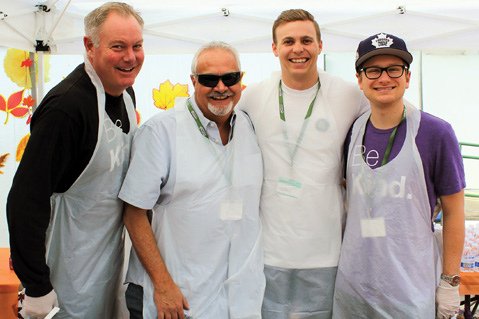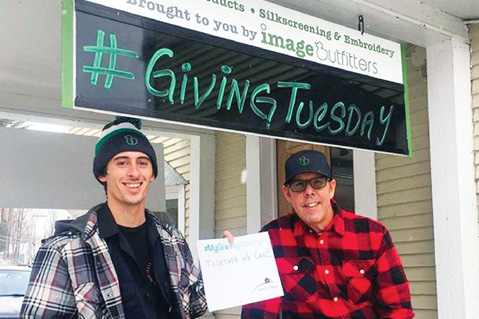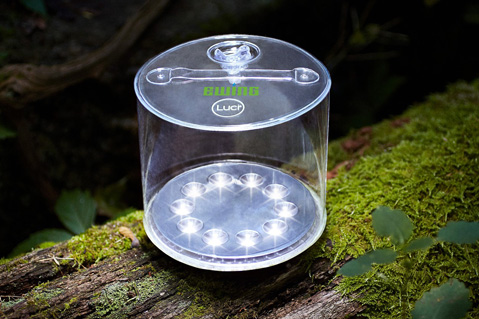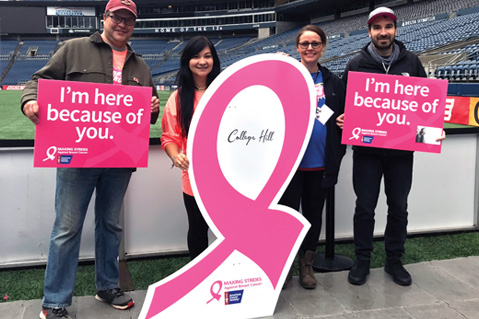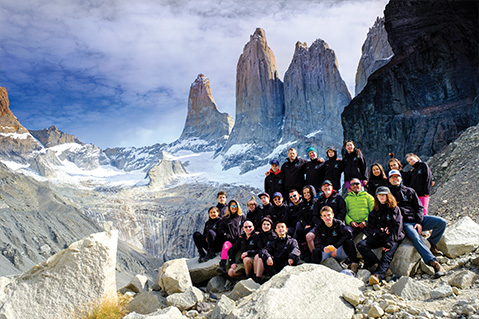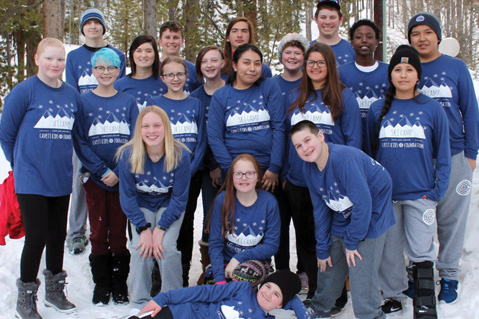After years protecting our country in the military, Dean Wegner began a career to help others.
Wegner graduated from West Point in 1993, learned to fly helicopters in aviation school and went through the notoriously grueling Army Ranger School. It’s here that troops in training are put through stressful combat situations while deprived of sleep and food for more than two months. It’s some of the most demanding training in the military. Eventually, when he landed in the corporate world after seven years of active duty, Wegner knew he wanted to find a way to give back to active troops and veterans. They had been beside him through some of the world’s most challenging training, all in preparation for defending Americans.
Today, Wegner is the founder & CEO of Authentically American (asi/127625) in Nashville. The company donates 10% of gross profits to the Folded Flag Foundation, which provides educational scholarships and grants to spouses and children who have lost a loved one in combat; and REBOOT Alliance, which offers free treatment for veterans and first responders suffering from PTSD. The distributor also sells only 100% made-in-the-USA products in an effort to support American reshoring. “We named the company what we did because we’re intentional,” he says. “We celebrate patriotism, love America, believe in the American worker and honor American heroes.” Businesses have always given back through charitable donations or by encouraging volunteerism. But recently, companies have incorporated a giveback component into their sales model, where each sale contributes directly to a charity or cause. It’s part of a growing worldwide movement for businesses to leverage their brands and profits for the greater good.

It’s not just for good karma; it’s also an opportunity. Consumers, particularly younger ones, are spending time volunteering and they want the companies they work for and with to do the same. According to the Millennial Impact Report by Achieve, a marketing agency focusing on boosting interest in causes, 46% of millennials had volunteered for a cause associated with a social issue in the month before the survey, and 52% had donated money. Why does this matter? Because millennials are the largest generation in th U.S. workforce right now, according to the Pew Research Center, and 73% are involved in purchasing decisions, according to research by Forrester.
But it’s not just millennials who place importance on giving back; it’s all generations. A study by corporate social responsibility consultancy Cone Communications found that 87% of buyers will purchase a product because the company supports a cause they care about.
It’s a reaction to unbridled capitalism and a sole focus on the size of your bank statement, says Lindsay Hadley, the CEO & founder of Hadley Impact Consulting, an agency that helps nonprofits and corporations market and raise awareness for their causes.
“Once the value proposition and profit talk developed, it became an inherently reward-based system,” she explains. “And the resulting greed knew no bounds: there were just a few people at the very top, climate change worsened, crime rates rose and companies still just cared about their bottom line and their shareholders.”
But that’s changing, she says: “Consumers, especially millennials, recognize that their dollars are powerful and they’re demanding companies take responsibility. It’s more holistic. Greed hurts everyone in the end, not just the people being exploited. We’re recognizing the impact and how far the pendulum has swung. Now it’s swinging back. Business does better when society does better.”
Jeb Ory, the CEO and co-founder of DC-based Phone2Action, maker of software that gives people information to get in touch quickly and easily with their legislators for grassroots advocacy efforts, says that organizations across many different industries are becoming more interested in engaging their clients and stakeholders.
"It’s about more than just selling widgets now and more than the bottom line. Companies also need to make the world a better place."Jeb Ory, Phone2Action
“People’s trust in government now is really low, but activism rates are high,” he says. “There’s new discussion about social responsibility and corporations’ role in that, because they’re filling the void created by a lack of trust in the government. It’s about more than just selling widgets now and more than the bottom line. Companies also need to make the world a better place.”
But giveback programs in the promo industry come with a caveat. While a Gen Zer may commit to buying only clothes with a charitable component in her personal life, for instance, end-buyers may not always have the same freedoms for their promo needs. That’s because there are other B2B-specific factors at play: price, budget, need, timing, even the boss’s whims. When the product takes precedent, the charitable aspect may take a backseat.
But that isn’t stopping promo companies from giving back when they can. It may be a differentiator, but more often it’s simply the right thing to do – and something that firms of all sizes can take pride in.
Along with Authentically American, here’s a look at seven more companies that are capitalizing on the power of their businesses to make a difference, one cause at a time

